Our Former Heads of Department
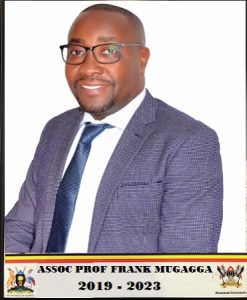 |
Despite the noticeable vibrancy, Prof Mugagga took over the Headship at a time when the Department was grappling with a number of systemic challenges including departure of Senior and prolific Staff notably, Profs Shuaib Lwasa and Jackson Majaliwa and Dr. Isaac Mugume; graduate teaching space constraints occasioned, in part, by loss of space (Room 23, located in CHUSS building) to the Department of Development Studies; lack of budgetary allocation, on the college budget, for both graduate and undergraduate field activities; low graduation rates on the graduate programmes; delayed approval of the MSc Climate Change and Development, despite having been prepared over a decade earlier; part time lecturers who had served the Department for a long time but had never been absorbed into university service; no replacements for retiring or demised Support Staff; And more importantly, COVID19 disruptions/lockdown that culminated into congested academic years. Through dialogue and engagement with CHUSS Management and University Top Management, Prof Mugagga was able to recover Room 23, had it refurbished and turned into a teaching and study Room for our graduate students; secured funding for graduate fieldwork and recess activities on the college budget; registered phenomenal improvement in the graduation rates, thanks to the weekly graduate seminars that he innovately instituted; Frank lobbied and had two long serving part time lecturers absorbed into university service; ensured that contracts of support Staff were renewed; successfully organized the first ever departmental retreat that involved academic, administrative and support staff; secured ZOOM licenses and WiFi hotspots to facilitate online teaching and research; started a welfare fund to support colleagues in times of need; successfully presided over the review of several academic programmes (including Master of Land Use and Regional Development Planning (MLURD), Master of Science in Disaster Risk Reduction (DRiM), Master of Geographical Sciences (MGES), Bachelor of Science in Meteorology (BSc MET) Bachelor of Geographical Sciences (BGS); supported colleagues to secure confirmation in university service, promotions, scholarships and sabbaticals; ensured that the BSc MET Programme was not merged with the BGS and the Bachelor of Environmental Science programme, hosted in the Department of Environmental Management. New academic programmes such as the MSc Climate Change and Development and the MSc Applied Meteorology were launched during Prof Mugagga’s tenure. He also enhanced local and international collaborations through signing new MoUs and renewing existing ones, forming multidisciplinary research teams that culminated into research, as well as, staff and student mobility grants. |
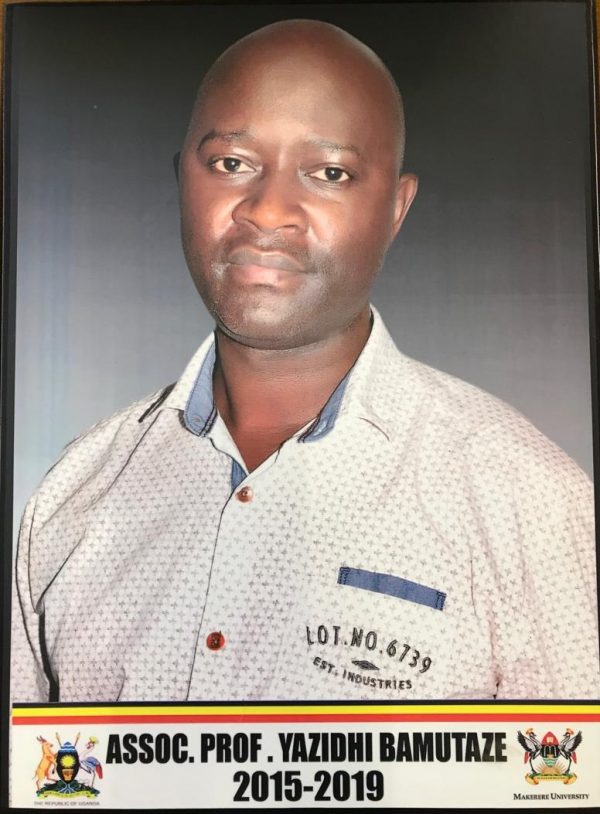 |
He inherited a department with some challenges including low finances , lowest profile in the school and college, low visibility and poor brand, low levels of staff rank in the college, poor infrastructure and limited field equipment, lack of strategic framework and direction, inadequate teaching aids. However during his term in office, the status of the department was transformed, through modern infrastructure, new technologies that softened the research and teaching activities in the department. During his tenure, the department\’s had become an example to many other units in the university hence transforming it to greater heights. |
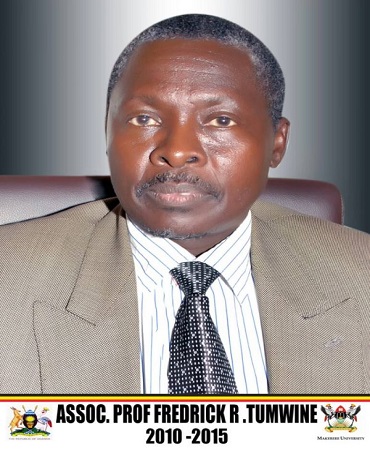 |
The Department had lost all its vibrant programmes that had been formed during the reign of Professor Sengendo. With the new name, Department of Geography, Geo-informatics & Climatic Sciences (DGGCS), he helped the members of the Department to use their potential to transform it. He encouraged members to use the collaborations already in place and create new ones. Using decentralization policy, members were assured of using the name of the Department to develop proposals for funding and to advertize the Department. The Department revived the formation of new programmes. These measures transformed the Department to greater heights. He happily and confidently handed over the Department to Dr. Yazidhi Bamutaze on July 21, 2015. |
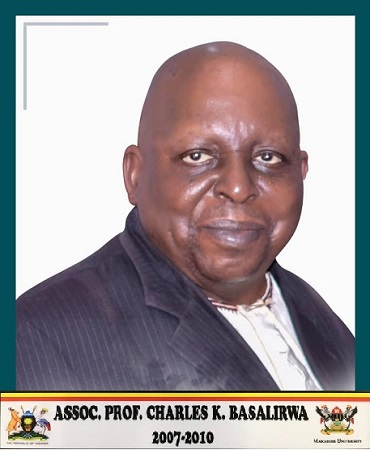 |
He catalyzed the formation of Makerere Institute of Geographical Sciences (MIGS) which positioned the Department to merging with Faculties of Agriculture and Forestry and the Institute of Environment to form the current College of AGricultural and Environmental Sciences (CAES). His leadership saved the Department from a catastrophe of remaining in Arts. |
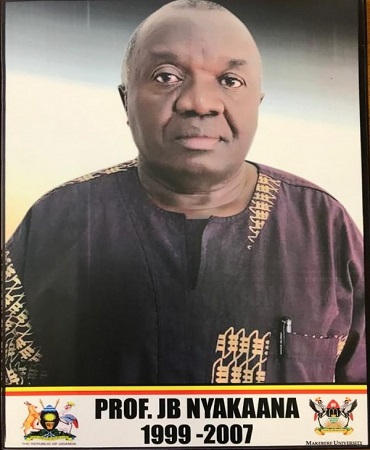 |
Prof. Nyakaana inherited a very vibrant Department. He emphasized and encouraged members of the Department to acquire high qualifications. Collaboration with Norwegian University of Science and Technology played a big role in training many masters students especially the Assistant Coordinators. A good number of members of staff enrolled for PhD studies in the Department. |
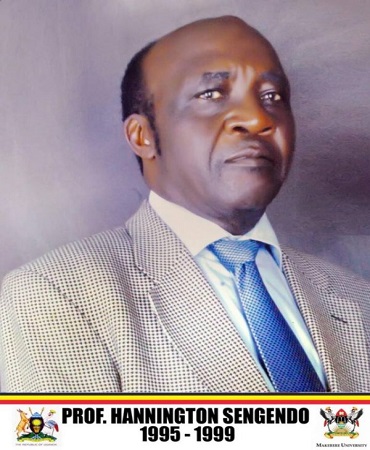 |
Prof. Sengendo rejuvenated the Department by utilizing his fellow senior members, Prof. Nyakaana and Associate Prof. Basalirwa. During the reign of Professor Sengendo the Department utilized the policy of the University to start a number of private programmes. These included: Bachelor of Tourism, Urban Planning, Environmental Management and Development studies. The Department was envied by many. He was well known for a decentralized policy of administration. He convinced the Faculty of Arts administration to establish a post of Coordinator. Each program was headed by a Coordinator who had a lot of power and was assisted by an Assistant Coordinator. He initiated the post of Examination Officer to help in the running of exams. Due to his performance and being a member of the greatest Department in the Faculty of Arts, he was elected Associate Dean in 1999. |
|
Mr. Kiboma headed the Department for about 6 months and left for Mbale Islamic University. |
|
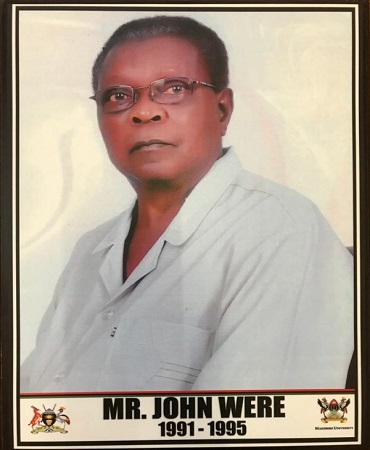 |
Mr. Were headed the Department with very few members of staff. This was one of the most difficult times of the Department. His main achievement was to convince members who had left the Department due to political and economic reasons to return and recruit new ones. As a result the Masters in Landuse and Regional Development (LURD) was started. Mr. Derek Muhwezi and Dr. Paul Musali were among the first three students on this program. |
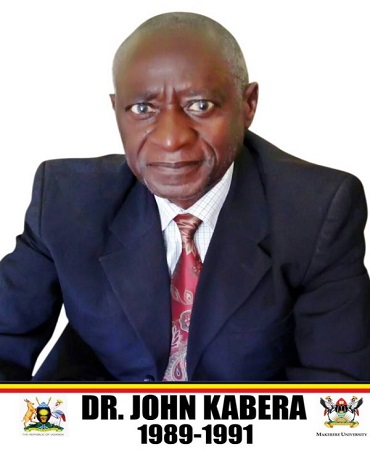 |
Geography Department was the second one after Population Studies to get computers in Makerere University. This was because of his close links with Professor Ntozi. He left the Department in 1991 to head Population Secretariat. |
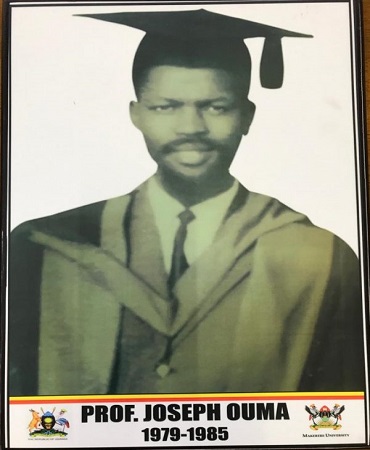 |
Prof. Ouma returned from Kenya after the fall of Idi Amin and embarked on the revival of the Department. He played a big role in the strenghthening of Geomorphology in the Department. He is well known for his centralized type of administration. He never allowed anybody to stand in his way if he wanted to have something done. He was a fast mover. Slow fellows could not work with him. He stressed field work in the Department. |
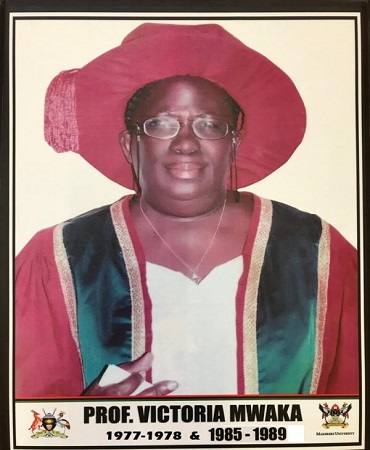 |
The first female geographer to hold a PhD headed the Department twice. Prof. Mwaka played a crucial role in the establishment of the Department of Gender Studies formerly the Department of Women Studies in 1991. She went ahead and headed until she joined the Constituent Assembly in 1994 – 1995 and later Parliament in 1996 – 2006. |
|
Dr. Muwonge headed the Department for a short time and left the country. |
|
|
He was Head for a short time. He flee the country to Kenya due to political instability. |
|
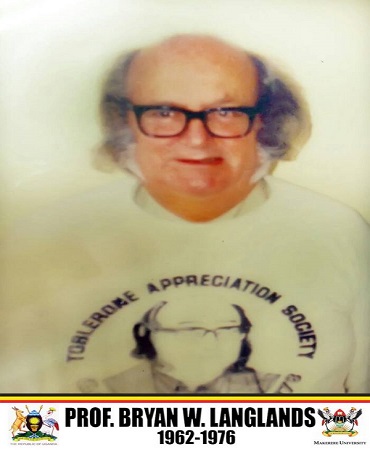 |
He headed the Department in its infancy. It was a small Department with few students. He prepared Langlands to replace him. |
